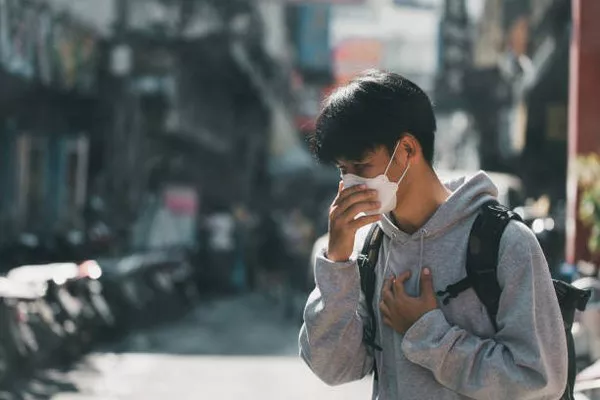As the temperatures rise and nature bursts into full bloom, many individuals find themselves grappling with the unpleasant symptoms of summer allergies. From sneezing and itching to congestion and fatigue, the impact of seasonal allergies can significantly diminish one’s quality of life during the warmer months. In this comprehensive guide, we delve into the intricacies of summer allergies, exploring their underlying causes, various types, common symptoms, and effective management strategies to help individuals navigate this seasonal challenge with greater ease and comfort.
Understanding the Causes of Summer Allergies
Summer allergies, also known as seasonal allergies or allergic rhinitis, are primarily triggered by airborne allergens prevalent during the summer months. These allergens can originate from a variety of sources, including:
Pollen: Pollen from trees, grasses, and weeds is a primary culprit behind summer allergies. As plants undergo pollination during the warmer months, they release pollen into the air, triggering allergic reactions in susceptible individuals.
Mold Spores: Warm, humid conditions provide an ideal breeding ground for mold spores, which can proliferate in outdoor environments such as gardens, forests, and damp areas around the home. Exposure to mold spores can exacerbate allergy symptoms in sensitive individuals.
Outdoor Air Pollution: Summer months often coincide with increased levels of outdoor air pollution, including ozone, particulate matter, and volatile organic compounds (VOCs). These pollutants can irritate the respiratory tract and exacerbate allergy symptoms in susceptible individuals.
Insect Stings and Bites: Bees, wasps, mosquitoes, and other insects become more active during the summer months, increasing the risk of insect stings and bites. For individuals allergic to insect venom, such encounters can trigger severe allergic reactions known as anaphylaxis.
Understanding the specific allergens that trigger your symptoms is essential for effectively managing summer allergies and minimizing exposure to potential triggers.
Exploring Types of Summer Allergies
Summer allergies encompass a diverse range of allergic reactions triggered by various environmental allergens. Common types of summer allergies include:
Pollen Allergy (Hay Fever): Pollen from trees, grasses, and weeds can induce allergic rhinitis, commonly known as hay fever. Symptoms may include sneezing, nasal congestion, runny nose, itchy eyes, and throat irritation.
Mold Allergy: Exposure to mold spores, which thrive in warm, humid environments, can trigger allergic reactions in susceptible individuals. Symptoms may include sneezing, coughing, wheezing, nasal congestion, and skin irritation.
Insect Allergy: For individuals allergic to insect venom, such as bees, wasps, and mosquitoes, insect stings or bites can elicit severe allergic reactions, including swelling, itching, hives, difficulty breathing, and anaphylaxis.
Outdoor Air Pollution Allergy: Increased levels of outdoor air pollution during the summer months can exacerbate allergy symptoms in sensitive individuals. Common pollutants include ozone, particulate matter, and VOCs, which can irritate the respiratory tract and worsen allergy symptoms.
Identifying the specific type of summer allergy you experience is essential for implementing targeted management strategies and reducing exposure to allergens.
Recognizing Symptoms of Summer Allergies
The symptoms of summer allergies can vary in severity and may manifest differently depending on the type of allergen involved. Common symptoms of summer allergies include:
Sneezing
Nasal congestion
Runny or stuffy nose
Itchy or watery eyes
Throat irritation or coughing
Wheezing or difficulty breathing
Skin rash or hives
Swelling of the face, lips, tongue, or throat
Nausea, vomiting, or diarrhea (in severe cases of anaphylaxis)
It’s essential to recognize and promptly address these symptoms to alleviate discomfort and prevent complications associated with untreated allergies.
Effective Management Strategies for Summer Allergies
Managing summer allergies requires a multifaceted approach aimed at reducing exposure to allergens, alleviating symptoms, and improving overall quality of life. Key strategies for managing summer allergies include:
Avoidance of Allergens: Minimize exposure to allergens by staying indoors during peak pollen or mold spore counts, keeping windows closed, using air conditioning with HEPA filters, wearing protective clothing when outdoors, and avoiding areas with high insect activity.
Allergy Medications: Over-the-counter and prescription allergy medications can help alleviate symptoms of summer allergies, including antihistamines, decongestants, nasal sprays, and eye drops. Consult with a healthcare professional to determine the most appropriate medication regimen for your symptoms.
Immunotherapy (Allergy Shots or Sublingual Tablets): Immunotherapy, such as allergy shots or sublingual tablets, can help desensitize the immune system to specific allergens, reducing the severity of allergic reactions over time. This long-term treatment approach may be recommended for individuals with severe or persistent allergies.
Allergen Immunization: Insect venom immunotherapy (allergy shots) is a specialized form of immunotherapy used to desensitize individuals allergic to insect venom, such as bees, wasps, or fire ants. This treatment can significantly reduce the risk of severe allergic reactions to insect stings.
Environmental Modifications: Implement environmental modifications to reduce allergen exposure, such as using allergen-proof bedding, regularly cleaning and vacuuming your home, maintaining low humidity levels to prevent mold growth, and removing sources of standing water.
Nutritional Supplements: Some studies suggest that certain nutritional supplements, such as quercetin, vitamin C, and omega-3 fatty acids, may help alleviate allergy symptoms and modulate the immune response. However, further research is needed to confirm their effectiveness.
Psychological Support: Living with chronic allergies can take a toll on mental and emotional well-being. Seek support from healthcare professionals, support groups, or counseling services to address the psychological impact of allergies and develop coping strategies.
See Also: 4 Most Common Summer Allergies
Conclusion:
Summer allergies pose significant challenges for millions of individuals worldwide, impacting their daily lives and overall well-being. By understanding the underlying causes, types, symptoms, and management strategies associated with summer allergies, individuals can take proactive steps to minimize allergen exposure, alleviate symptoms, and improve their quality of life during the warmer months. With proper education, support, and access to effective treatment options, individuals can empower themselves to thrive despite the challenges posed by summer allergies, enjoying the beauty of the season with greater comfort and confidence.

